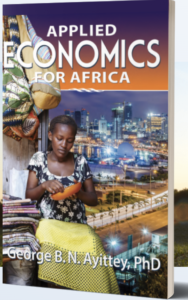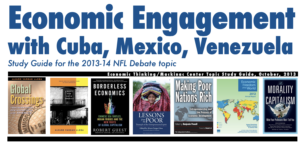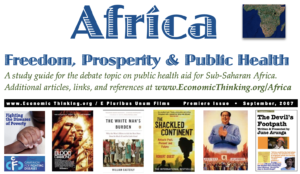NCFCA TP: International research, import/export, eastern or southern Africa
Many interesting resolutions with great opportunities to learn, discuss, and debate. [Update: the import-export policy reform topic was chosen. Discussed in other posts.]
Let’s start with Africa:
“The United States Federal Government should substantially increase economic assistance to one or more countries in eastern or southern Africa as defined by the United Nations GeoScheme.”
Eastern and southern Africa have vast natural resources and large populations, what Julian Simon emphasized is the “ultimate resource.” According to Worldometers in 2020, eastern Africa population was 446 million and southern Africa’s 69 million. Eastern and southern African populations are young, with the median age under 30. Worldometers gives the median age in Eastern African as under 20.
A challenge for debaters will be to find what “economic assistance” might be significantly increased. Over the past fifty years much or most “economic assistance” has unfortunately been harmful in many ways though helpful in others for African countries and people. Economic aid (part of foreign aid) gets transferred through the U.S. government and then through the receiving country’s government, and much is lost or diverted in the process.
For a past Africa debate topic, I prepared a study guide: Africa: Freedom, Prosperity & Public Health (pdf). June Arunga, from Kenya, shares her thoughts in this TED talk: Why does cool stuff come from elsewhere?
William Easterly’s book The Tyranny of Experts explains why economic assistance so often becomes projects with planners disrupting the lives of everyday people in Africa in an “Elusive Quest for Growth” (the title of an earlier Easterly book).

The late Dr. George B. N. Ayittey’s textbook Applied Economics for Africa: A New Textbook for African Students is available online from The Atlas Network.
Poor governance and weak institutions across eastern and southern Africa make economic development difficult for local enterprises and entrepreneurs. CISI has this article: Set Up for Success: Charter Cities in Sub-Saharan Africa. The Charter Cities Institute offers in-depth research on expanding special economic zones, Sustainable Development Zones, and Charter Cities in Africa.
For a past U.S./Africa NCFCA (HSLDA?) resolution, many teams ran cases advocating the Africa Growth and Opportunity Act. Reducing trade barriers to Africa could be a case for the second NCFCA resolution:
The United States Federal Government should significantly reform its policy regarding import and/or export regulations.
The best economic assistance the U.S. could provide the people of eastern and southern Africa would be improving access to U.S. markets and capital, that is, reducing barriers to the import and export of goods and services. From the World Bank, Expanding African Trade to Boost Growth and Reduce Poverty (February 10, 2022).
The Atlas Network’s Center for African Prosperity supports think tanks and education organizations across Africa.
The import/export topic would of course involve the rest of the world as well, including trade with China and with Mexico and other Latin American countries. I have many posts from the past US/China topic here.

A past NSDA resolution called for increasing economics engagement with Mexico, Cuba, or Venezuela. Our study guide for that topic is online here.
Fear of international trade has been fanned by the rise of nationalism, populism and of course protectionism. Companies and industries wishing protection from foreign competition are easier to identify, and can lobby for protection. Consumers of goods and services facing higher prices due to restrictions on import are less likely to organize and lobby for lower prices and wider selections of goods and services. Henry Haziltt’s Economics in One Lesson and Bastiat’s The Law, explain the dynamics of “the seen and the unseen” with regard to trade policies and realities.
The international research topic is also interesting. Patrick McDonald in his Ethos Debate post notes: “The authors have aimed the resolution at the bureaucracy at play within international scientific cooperation.”
The third NCFCA option was: The United States Federal Government should significantly reform its policies regarding international research collaboration.
My research over the two years on nutrition and public health suggests a wider problem beyond just bureaucracy and barriers to cooperation. Instead, because the U.S. and E.U. have centralized funding decisions for scientific research, politics has constrained scientific advances. For example, political control of nutrition research blocked promising research that threatened long-accepted federal dietary guidelines. Funding went only to support accepted theories of why people become overweight. My paper for the Goodman Institute, Did the Government Make Us Fat? outlines how U.S. policies have long lacked support from quality research. And unfortunately, nutrition and disease research in the UK, EU, Canada, and other countries followed the US lead. Scientists proposing research on how reducing carbohydrates can help to reduce obesity, diabetes, and cardiovascular disease simply didn’t receive funding.
The EAT-Lancet project is an international research project design to convince everyone to shift to a plant-based diet. According to international EAT-Lancet advocates, meat is bad for our health, bad for animals, and bad for the environment. These claims may or may not be true, but the project is more international research advocacy than international science. Centrally funded and controlled science is more the problem than the solution.
Critics of EAT-Lancet include Dr. Georgia Ede – ‘EAT-Lancet’s Plant-Based Planet: Food in the (Mis)Anthropocene’, Dr. Zoë Harcombe, The EAT Lancet diet is nutritionally deficient, and many, many others.
I realize there is much more to the international research collaboration topic, such as the many current regulations restricting collaboration that could advance scientific knowledge. I mention nutrition and dietary guidelines because it set the stage for the pandemic and lockdowns by contributing to the poor metabolic health of people around the world. Most posts on Normal Nutrition.
Concerning similar problems with government funded research (national and international are discussed in Terence Kealey’s 1996 book The Economic Laws of Scientific Research. From FEE: The Economic Laws of Scientific Research by Terence Kealey (1997). And from this 2013 Cato Unbound Who Pays for Science, again by Terence Kealey: The Case against Public Science. Cato Unbound includes History Supports Government Funding for Public Health and other essays and responses.

